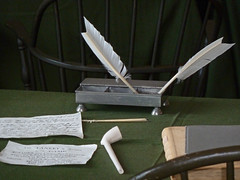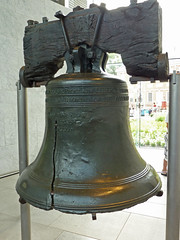The first test, like most of my survey tests, was a short-essay ID test, with terms taken from (and arranged by) the textbook chapters, supplemented with theory terms and a few names from the lectures. Twelve terms (out of 25 choices, out of about 50 terms on the study guide) over a 50-minute class.
The class after the first test, I did a short anonymous survey to see how people felt about the event. I feel reasonably good about the first question, though their views may change once they’ve actually seen grades: it suggests, though, that I prepped them appropriately for the kind of work. Question 2 is pretty typical results, it seems to me, though the “studied regularly” number should be higher given that I’ve assigned regular homework this semester which feeds directly into the test. The third question results are interesting: there doesn’t seem to be a correlation between amount of study time and expected grade (I’ve not actually performed any statistical tests on this data, though; N=28); the distribution of answers is a little more optimistic than my test results tend to be, but I won’t know until they’re graded. The comments are not particularly surprising, overall.
Quick Post-Test Survey
1. The test was
0% a. a cakewalk
15% b. easier than I expected
60% c. about as hard as I expected
20% d. harder than I expected
5% e. impossible
2. I studied for the test
7.5% a. not at all
15% b. a little
25% c. right before the test
20% d. several hours in the week leading up to the test
7.5% e. off and on for a few weeks
25% f. every week, as part of regular homework
3. I think I got a grade of
10% a. F
10% b. D
27% c. C
33% d. B
20% e. A
Other comments or thoughts?
- Had problems with dates
- I think 50 minutes for covering 12 definitions fully is not OK
- Multiple choice?
- Tough, but well rounded
- Seeing my grade will help me study for the next test
- Too many words on the study guide
- I’m guessing that if I had studied more I would have had a better outcome.
- Dates threw me off a lot.
- So many things on first list but not on the test, that it caused me to not learn the subjects
- I didn’t have the book long enough to study the material
- Ran out of time. Need about 15-20 minutes more, or learn to write less or faster.
- Not a good form/type of test.
- Unrealistic.

